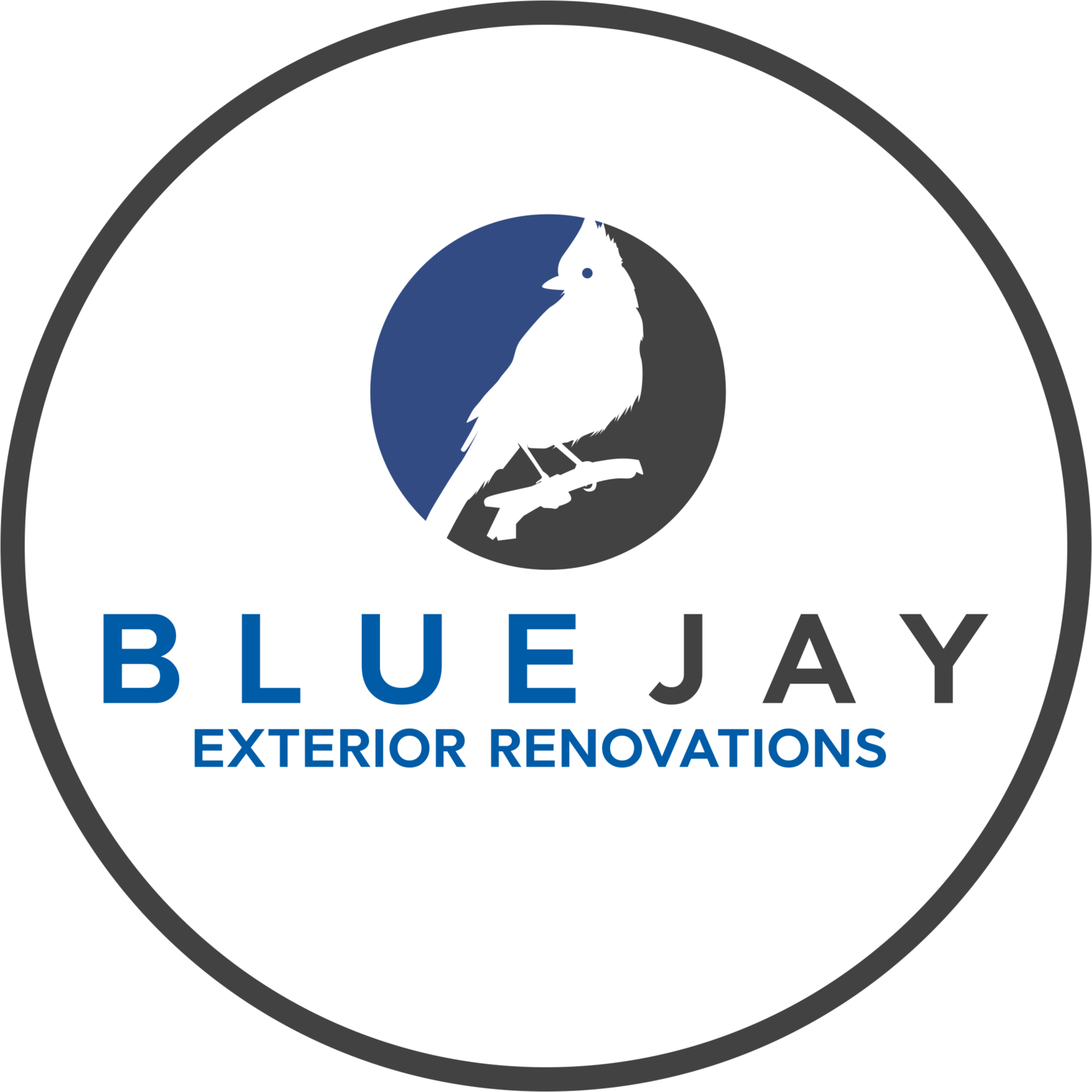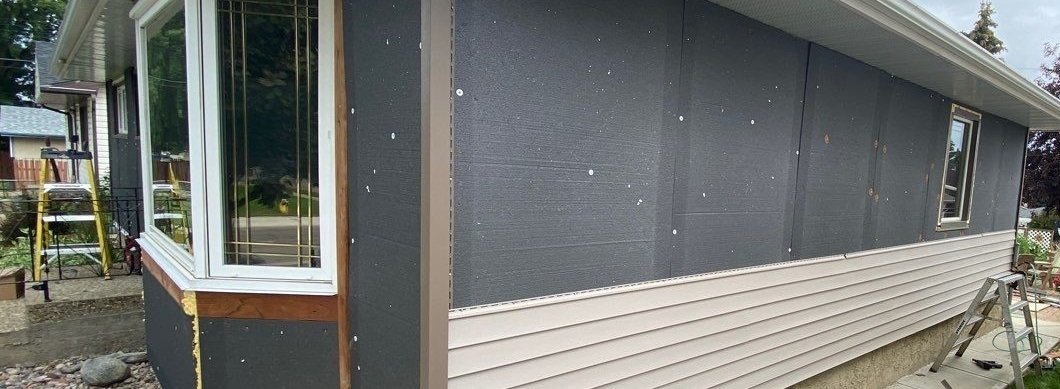Exterior Insulation Edmonton
EnerSpan exterior insulation installed under vinyl siding (Royal Building Products - Heather)
Adding exterior insulation to your home can be an excellent way to make your home more comfortable, help the environment, and keep your utility bills down. If you’ve ever thought that your home is too cold in the winter time, adding a layer of insulation to your siding project might be a perfect fit.
Though it may seem straightforward to simply add some insulation to a siding project, there are some very important details to consider. If a contractor isn’t careful, they could cause moisture issues, use the wrong fasteners, or simply ruin the look of the project by not properly accounting for the new depth of the wall.
And of course, you’ll want to make sure you’re getting the best exterior insulation product for your specific project. There are dozens of insulation options on the market, but here are the four we recommend:
Enerspan: For best overall performance
EnerSpan insulation installed under James Hardie siding (Arctic White)
Plastifab’s EnerSpan is our top recommendation for exterior insulation if a permanently high R value is your goal. EnerSpan insulation adds a thermal insulation value of R4.7 per inch, but what makes EnerSpan unique is that because of its composition (graphite infused polystyrene), it doesn’t lose R value over time or in cold weather.
The other thing we love about EnerSpan is that it’s a very breathable insulation panel (5.2 perms: the highest on the market.) Better breathability in your exterior insulation improves the long term health of your wall assembly.
As an added bonus, EnerSpan is manufactured by PlastiFab, right here in Alberta. This means that costs, lead times, and custom ordering capabilities are best in class.
Strong and consistent thermal performance plus a high perm rating makes EnerSpan one of our most common recommendations.
IKO EnerAir: Best for raw r-value
Iko EnerAir breathable polyiso insulation installed under Mitten vinyl siding (Muskoka Green)
EnerAir by IKO is a polyiso insulation panel with fiberglass facings on both sides. With an approximate R6 per inch, EnerAir product is at the top of the line when it comes to thermal value for exterior insulation products.
Like all polyiso insulation, the R6 rating does fluctuate. In fact, when EnerAir is fresh off the assembly line, it would achieve something close to R6.7 in a lab test. Over time, the R value will decline somewhat, and R6 is the average performance you can expect over the first 15 years of the product’s lifespan. In colder temperatures, the R value can also drop by as much as 25%. Even with these limitations, EnerAir still outperforms most of the basic insulation products out there - and the higher raw R value per inch might mean a simpler and more cost effective wall assembly for your home.
Like EnerSpan up above, EnerAir will allow your walls to breathe. Most polyiso insulation products are faced with aluminum foil, which is impermeable to vapour, EnerAir’s fiberglass facings do allow moisture vapour to escape, with a perm rating of 1.0.
EnerAir offers some noise reduction capabilities as well, though it’s not as robust as Rockwool (read on for more information). But if your main concern is thermal R value, enjoy knowing that EnerAir will help reduce some road noise too!
EnerAir is available to order in three thicknesses: 3/4”, 1”, and 1.5”.
Rockwool comfortboard: best for sound and fire rating
Rockwool Comfortboard 110 insulation
If you’ve got a problem with noisy neighbours, Rockwool Comfortboard is the solution for you! A top of the line product most commonly used in commercial applications, Rockwool can be an excellent choice for residential installs as well.
Rockwool is a mineral wool insulation, different in composition and benefits than the more commonly used polyiso insulations. Rockwool does not have the high end thermal value of EnerAir or EnerSpan, coming in at about R4 per inch.
What it offers instead is the best noise reduction capabilities of any exterior insulation we’ve found. If road noise is what’s keeping you from absolutely loving your dream home, this may be the best choice.
Rockwool has another unique benefit in that it is noncombustible. While heat can pass through it, Rockwool will not burn or light on fire - similar to Hardie Board siding. If you’re in a dense or a heavily forested area, this may be worth considering.
Rockwool Comfortboard is available in thicknesses from 1” to 5” (though some of the thicker options may require a long lead time and a pretty expensive wall buildout).
Fanfold insulation: Best for leveling uneven surfaces
3/8” fanfold insulation installed to level out existing stucco surface
3/8” Fanfold insulation, sometimes called Levelwall, is an exterior insulation product that isn’t designed to provide high thermal values. Instead, it offers the benefits of easy installation, and to provide a level surface for siding installation.
We use levelwall when the goal of the project is to save money, and installing over top of the existing siding is in the client’s best interests. Installing the fanfold insulation over existing stucco or wood siding allows us to fasten vinyl siding through the existing exterior without looking wavy or lumpy.
3/8” fanfold does have some thermal value (approximate R 1.5), but the real value here is the cost savings over removal.
Interested in adding exterior insulation to your home? Reach out to us today to discuss the best options and plan for your home!





